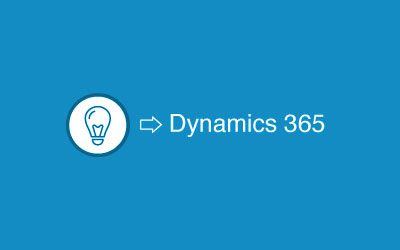In 2016, Microsoft launched Dynamics 365, a cloud-based Software-as-a-Service version of its respected Dynamics product line. Dynamics 365 comprises multiple enterprise resource planning (ERP) and customer relationship management (CRM) applications. Two versions are available. Business Edition is for smaller organizations. Enterprise Edition is suited to medium-sized and large organizations. Business Edition includes a Financials application. Enterprise Edition contains the full Dynamics CRM suite (now called “Customer Engagement Plan”) e.g. field service, sales, project service automation, and customer service. It also has Microsoft PowerApps Dynamics 365 for Operations.
High-Level Capabilities of Dynamics 365
The Dynamics 365 suite is envisioned by Microsoft as a portfolio of applications that help you make better decisions in your business. In addition to offering numerous operational functions like sales and marketing management, it’s intended to enable improvement in business outcomes through the use of data-driven insights and recommendations. It’s designed to enable better customer relationships, with more engagement. The solution portfolio also lets you automate and optimize everyday tasks by means of AI-driven workflows.
Core Modules of Dynamics 365
Microsoft Dynamics 365 consists of the following core functional areas, each with its own available apps/features:
- Sales – helps you prioritize prospects and focus on building sales pipeline. Dynamics 365 for Sales helps with optimization of sales processes and personalization. Microsoft Relationship Sales brings together Dynamics 365 and LinkedIn to enable better customer engagement. Dynamics 365 Sales Insights employs Artificial Intelligence (AI) to yield actionable insights into the sales process. Dynamics 365 Customer Insights gives you a single view of the customer, while Dynamics 365 Product Visualize enhances the buying experience by showing products with mixed reality.
- Customer Service – gives your agents and technicians the tools they need to deliver great customer service. Dynamics 365 Field Service provides field service operations people, e.g. service technicians with the ability to conduct their work in alignment with the broader customer service and customer relationship functions. Other available apps/features include tools for virtual agents, project service automation and remote assist, which uses mixed reality to help field people get their work done.
- Talent – gives HR the means to hire top talent and process onboarding, improving overall HR management in the process.
- Finance and Operations – connects and optimizes back office, retail and supply chain operations. Dynamics 365 for Retail extends this functionality to retail businesses, unifying in-store and back-office operations for personalized shopping experiences.
- Marketing – helps with targeting customers through campaigns that can be multi-channel in nature. Adobe Marketing Cloud is available as an add-on.
A Mixed Reality module lets you overlay digital content over business scenarios, which drives problem solving through contextual collaboration. For example, you can use Dynamics 365 Guides for hands-free guidance and training of employees. Dynamics 365 Layout shows how physical designs will look when they’re built in real life. This tool helps you move designs from concept to completion with confidence.
Are you interested in learning more about how Dynamics 365 can help you build your business? If so, let’s talk.


